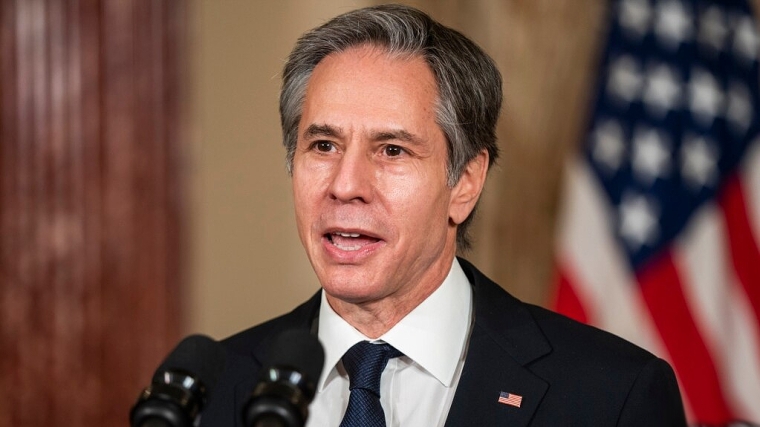The visiting US Secretary of State has made no mention of one of New Zealand's favourite economic deals, the Comprehensive and Progressive Trans Pacific Partnership (CPTPP), despite being told the United States would be welcome to re-join.
Instead, Antony Blinken pressed a US-designed programme, the Indo-Pacific Economic Framework (IPEF), as the main thrust of American trade policy in this region.
Blinken is in NZ for a short visit and spoke to reporters along with the Foreign Affairs Minister Nanaia Mahuta.
Welcoming Blinken, Mahuta said the US would be welcome to re-join CPTPP. The United States was a founding member of an earlier incarnation of this trade pact but cancelled its membership on orders from then-President Donald Trump.
After Trump's defeat in 2020, his successor, President Joe Biden, put trade lower in his rankings after internal reforms.
Blinken did not mention CPTPP when asked about this by reporters.
"Our focus right now is building up the Indo Pacific Economic Framework (IPEF)," he said.
"This is a new type of economic arrangement. It goes beyond free trade arrangements, both in the ambition of its commitment as well as the scope of areas that it covers."
IPEF was pushed by the Biden administration and covers major economies like India, the US, Japan, South Korea and Australia. As well as New Zealand it also includes ASEAN states.
It did not aim to cut tariffs but to deal with practical matters like unclogging blocked supply chains. Its four pillars are fair and resilient trade, supply chain resilience, infrastructure, clean energy and decarbonisation, plus tax and anti-corruption.
The deal has been criticised by some commentators as being inferior to the CPTPP and as more of an American diplomatic push to try to contain China than a proper trade deal.
But US officials say it actually improves on the standards for pre-existing trade deals and Blinken endorsed that view.
"We are working together to actually address what will be the critical pillars of 21st century economies: securing the resilience of supply chains, digital transformation, clean energy, and making sure that trade is actually facilitated and is done in a fair and transparent manner."
Blinken says there had already been success in boosting supply chains, and more progress would be made elsewhere.
"So, that has been our focus and we are gratified to have New Zealand's partnership, as well as many other countries, in terms of not just advancing our vision but turning it into a practical reality."
The Ministry of Foreign affairs and Trade (MFAT) appears to see IPEF mainly as an opportunity to achieve more rather than being an achieved success.
"A fully realised IPEF that includes New Zealand perspectives and ideas would provide an open and inclusive platform for the US to engage more deeply in the economic architecture of the Indo-Pacific," MFAT says.
"The IPEF is not a Free Trade Agreement, and will not include market access for goods or services through traditional schedules."
"But we think that there may be commercial opportunity for New Zealand in the Trade pillar through the negotiation of rules on Trade Facilitation, on Digital Trade, and on Regulatory Cooperation among other things," says MFAT.


We welcome your comments below. If you are not already registered, please register to comment
Remember we welcome robust, respectful and insightful debate. We don't welcome abusive or defamatory comments and will de-register those repeatedly making such comments. Our current comment policy is here.